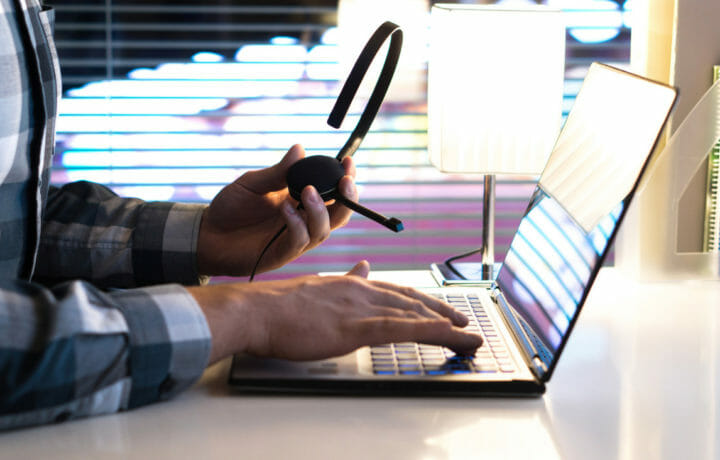Coronavirus and your clearance – while the pandemic continues to grab headlines as we enter the winter months of 2020, new applicants for security clearances are wondering what the background investigation and processing timelines look like well into COVID-19.
COVID or not, the security clearance process is changing, including current clearance holders entering into continuous vetting and new clearance holders experiencing virtual interviews with background investigators during the initial application.
A subscriber to the ClearanceJobsBlog filled out their e-QIP and fingerprint cards but wondered what were the next steps in the process:
After waiting about 9 months, my employer finally put me in for a Secret to assist on DOS related matters. I’m not sure who it’s through (DOD perhaps?), however, I filled out the e-QIP and finished fingerprinting last week. For reference, I’ve been a federal contractor supporting primarily DOJ projects for 5.5 years and had a DOJ Public Trust – which I know is not a clearance – for the duration. I had one round of edits last week that my company FSO notified me of (I made them and resubmitted the e-QIP later that day), and assuming there’s not another round of edits, is there a timeline insofar as how long a Secret would take to be adjudicated during the current COVID situation?
Additionally, are there further steps in the process, assuming there’s no errors or issues, that I should expect to occur? I’m under the impression that my wife will be interviewed, and/or family/friends may (or contacted somehow), but I’m also curious if these meetings are still going on in person during the current pandemic. I’m not worried about anything, but more trying to ascertain the process. Everything on my e-QIP was filled out accurately, I have no legal/ancillary issues that would cause any issues for what it’s worth (no criminal or civil history, no financial issues, etc).
SECURITY CLEARANCE Background investigation
The security clearance process generally includes the following steps applicants must complete:
- Filling out and submitting questionnaire (SF-85 / 85P / 86) or e-Qip/ eAPP, the online versions of these forms
- Checking references
- Employment verification
- Credit check
- Subject Interview
- Security clearance adjudication
In terms of linear timeline, the only thing you can expect for sure is that filling out your questionnaire will come first and potential adjudication against the 13 adjudicative guidelines will come last. The in-between is really the unknown.
In late March when many agencies were creating staggering schedules onsite or encouraging those who can to work from home, background investigations utilized more VTC and phone screening processes to avoid recreating the massive backlog we dealt with a few years ago. Agencies adopted remote procedures to work through the challenges of onboarding new personnel during COVID-19.
Additionally, the Office of Personnel Management (OPM), and Defense Counterintelligence and Security Agency (DCSA) issued guidance on how background investigations are moving forward, including the difficulty of submitting electronic fingerprint records. “The officials responsible for personnel vetting policy…permitted agencies, in the case of exigent and rare circumstances, to use alternatives such as virtual interviews and remote records access to minimize face-to-face contact,” a quarterly update from the President Management’s agenda stated. “This flexibility allowed background investigations to continue with minimal disruption and agencies to bring on mission-critical personnel.”
The pandemic certainly accelerated the need for remote or virtual standard operating procedures with new security clearance applicants.
SECURITY CLEARANCE PROCESSING TIMELINES
Despite coronavirus delays, the government is diligently moving forward to maintain current pending-case levels (hovering at a healthy 200,000 investigations). Current processing times for a Secret security clearance take 107 days to process, but note, these numbers are for DoD/Industry security clearance applicants only. Processing times for others such as active duty military, civilians, and the Intelligence Community are slightly lower.
VTC and other remote tech capabilities are allowing the process to continue moving in spite of COVID-19. In fact, the subscriber to this blog gave an update: after initially submitting his e-QIP in mid-August 2020, that he received his Secret clearance through DoD CAF this October.
This clearance timeline is not necessarily the rule: the clearance process will always depend on your individual situation.
As always, clearance applicants or anyone concerned of an inquiry can call or email for investigator verification. Investigators are authorized to conduct telephone interviews and while verifying the authenticity of an email or online scheduling tool may be foreign to some, DCSA encourages individuals familiarize yourself with the email and online verification tool. DCSA also has an Investigator Verification Hotline at 1-888-795-5673 or RMFSIMSST@nbib.gov.




